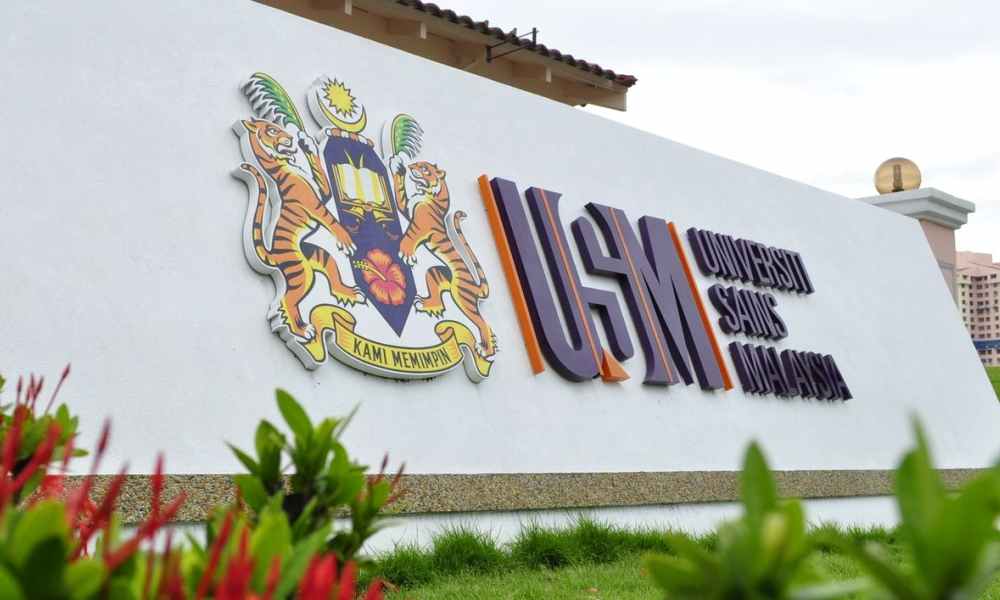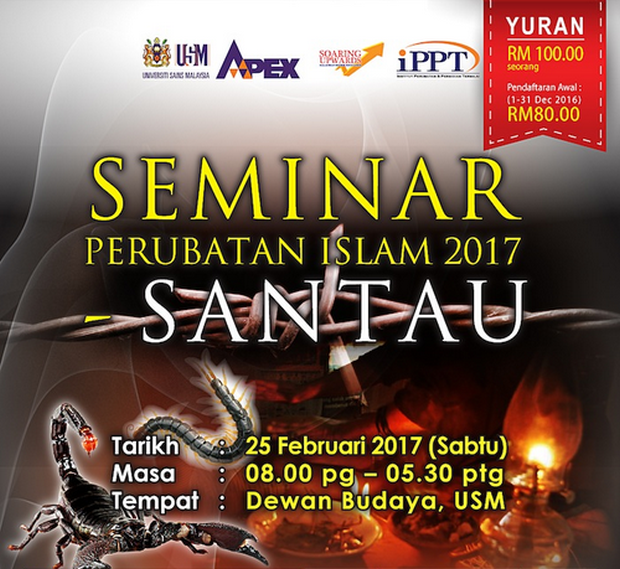USM cancels black magic seminar

Afterschool Team
January 6, 2017
Universiti Sains Malaysia (USM) cancelled a seminar that would have taken place in February about “Santau” due to conflict with the university’s focus on scientific development.
Public universities in Malaysia and other countries are educational institutions that deal with the propagation of knowledge in various fields. However, one thing in particular these universities have to propagate is facts based on empirical evidence and rigorous process of investigating claims made by various parties. Additionally, they have an ethical and a moral obligation to distinguish the difference between a proven theory and an untested hypothesis.
This isn’t limited to public institutions only; private universities also have this obligation. However, private universities may hold different “opinion” of certain things. But facts should and must always remain facts, unless new evidence suggest otherwise. To claim that the Earth is flat or to say that the Sun revolves around the Earth is a thing of the past because of evidence, but some people still disseminate these absurd and illogical claims.
Recently, a local university has been criticised over an announcement made over the conduction of a seminar that has no bases for empirical facts and no plausibility for a testable hypothesis. Members of Universiti Sains Malaysia (USM) were planning to conduct the said seminar on the subject of “Santau”, a supernatural believe among some Malays that has to deal with acts of curse or poison and is considered to be a form of Malay black magic. According to sources, Santau is basically the act of poisoning one’s enemies via physical contact or through the wind. It is said to be practiced by witch doctors or shamans “bomoh”.
The organisers behind the event planned to explain the “scientific aspects” of this practice and link it to the concept of Islamic healing and the organisers planned to relate it to the university’s medical institution. The seminar was to take place in February. Those who wanted to attend should pay RM100, and those who register early get RM20 discount.
However, USM announced yesterday, in a statement on their website, that the seminar has been cancelled and will not be held on the university campus. The statement clarified that after reviewing the event, campus authorities dictated that it is not in the best interest of the university to host this event as it is “a non-priority and not an area of strength focused upon by the university, especially at the USM Advanced Medical and Dental Institute (IPPT)”.
Prior to the announcement, Advanced Medical and Dental Institute (IPPT) was named to be the organiser of the event.
USM has also clarified that the focus of the institute is to develop its capabilities in areas of academic research and is currently pursuing development in the field of oncology. The focus of any discussion, scholarly discourse or an academic conference has to align with the university’s field of expertise and academic development.
This is not the first time such things took place or were about to happen. Last year, there was much criticism over the so-called “anti-hysteria kit” at Universiti Malaysia Pahang which was sold for the handsome price of RM8,750. The kit contained chopsticks, salt, lime, vinegar, pepper spray and formic acid and the producers claimed that it wards off evil spirits. Ironically, the same year, there was an announcement about a Standard Operating Procedure to combat the practices of which craft.
In 2014, Universiti Kebangsaan Malaysia’s Faculty of Social Science and Humanities organised a forum to help local Muslim doctors reconcile their beliefs in spiritual being and black magic with modern medicine.
USM has done the right thing in cancelling such event because it could have severe implications on the reputation of the university and its association of science. Additionally, USM is one of the best universities in the country and among the top universities in the world where it is ranked 330.
It is important that other public institutions learn an important lesson from this and be cautious when it comes to matters concerning ‘supernatural’ beliefs. These institutions should also be true to their quest and the propagation of science and knowledge. If issues like that are to be discussed, it is important to put distinctions in place and be open to testable frameworks and commit to empirical evidence.





